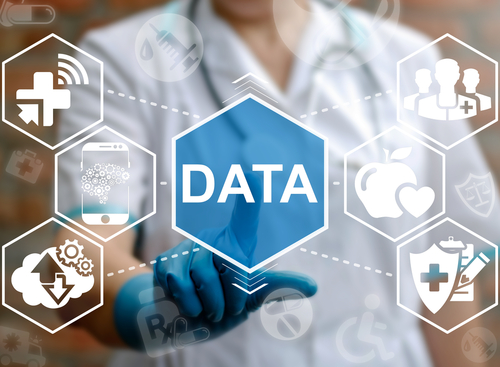In this contributed article, Rajesh Viswanathan, Chief Technology Officer for Inovalon, discusses how for the past year, AI was at the center of conversations throughout healthcare. While the potential for AI to revolutionize healthcare is clear, from care delivery to enhancing operational efficiencies and accelerating research, many organizations are still figuring out where to begin.
Where Artificial Intelligence Is Making a Difference in Healthcare
Quantum-Enhanced Generative AI Generates Viable Cancer Drug Candidates
Zapata Computing, Inc., the Industrial Generative AI company, announced that its scientists, in collaboration with Insilico Medicine, the University of Toronto, and St. Jude Children’s Research Hospital have demonstrated the first instance of a generative model running on quantum hardware outperforming state-of-the-art classical models in generating viable cancer drug candidates. The research points to a promising future of hybrid quantum generative AI for drug discovery using today’s quantum devices.
Using Clinician Big Data to Alleviate a Struggling Workforce
In this contributed article, Charlie Lougheed, CEO and co-founder of Axuall, explains why healthcare needs to adjust its thinking and in what ways clinician big data can make impactful changes throughout the healthcare industry, from credentialing to attrition.
The Future of Applied AI in 2024: Transforming Healthcare, Energy, and Supply Chain with Tangible Outcomes
In this contribute article, Nick King, CEO and Founder of Data Kinetic, believes that 2024 holds great promise for Applied AI as it integrates into various sectors, transforming manufacturing, healthcare, energy, and beyond. However, as we move forward in this AI-driven future, addressing concerns such as misleading marketing, complex interactions, the need for guardrails and transparency, and the importance of meaningful AI education is crucial.
Life is Fleeting, But Data is Forever – Meet your Digital Twin
[SPONSORED POST] With the transformation of medicine from analog to digital, plus the rise of new data-generating devices for health tracking and genomic information, we can look forward to a new world in which virtually every aspect of a patient’s medical history can be communicated, stored, and manipulated. For each patient, this huge body of data represents a sort of digital twin, a treasure trove of useful medical information and insights that could become invaluable in developing patient treatments in the future.
Survey: Generative AI Shaking Up Digital Health Investors’ Funding Strategies and Industry Outlooks
Digital health investors say generative AI, oncology care and the challenges posed by clinician shortages are transforming their startup funding strategies and investment outlooks for the healthcare industry, according to the results of an online survey from GSR Ventures. Startup company valuation expectations among backers, however, are significantly lower than in 2022.
Revolutionizing Bioscience Research: Creating an Atlas of the Human Body
Making healthcare and life science (HCLS) discoveries is time-consuming and requires considerable amounts of data. HPC enterprise infrastructure with AI and edge to cloud capabilities is required for biomedical research to make creating a human atlas of the body possible. The HPE, NVIDIA and Flywheel collaboration using the latest technologies designed for HCLS promise to transform biomedical research.
Evolution of Conversational Intelligence in Healthcare
In this contributed article, Michael Armstrong, Chief Technology Officer at Authenticx, discusses how AI-driven tools play an increasingly significant role in analytics, including those used to improve customer experience, by extracting valuable, actionable data insights. AI and ML enable healthcare organizations to more effectively listen to — and better understand — their customers’ voices and solve common issues or barriers.
Analysis of 145 Generative AI Startups IDs Opportunities to Remedy Pain Points in Healthcare and Life Sciences
Generative AI technology could deliver industry-changing improvements in healthcare delivery and life sciences productivity, efficiency and patient outcomes and presents a massive untapped opportunity for entrepreneurs and investors, according to a new market analysis by Justin Norden of GSR Ventures, Jon Wang, and Ambar Bhattacharyya of Maverick Ventures.
How NLP Can Provide Deeper, Actionable Data Insights for All Healthcare Stakeholders
In this contributed article, Anoop Sarkar, PhD, Chief Technology Officer, emtelligent, discusses how providing clinicians with the most accurate and relevant information about a patient at the point of care requires a collaboration between AI-powered medical NLP and clinicians with deep medical knowledge. These collaborations will fulfill the promise of medical NLP.












